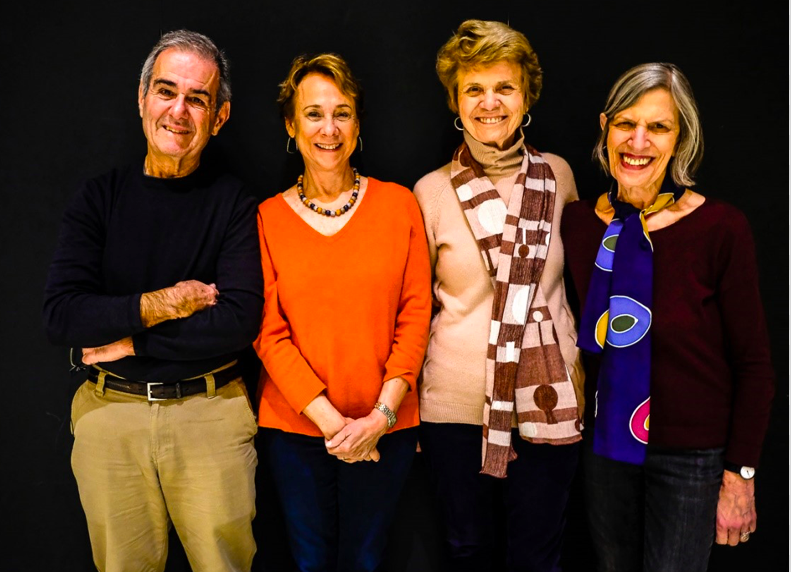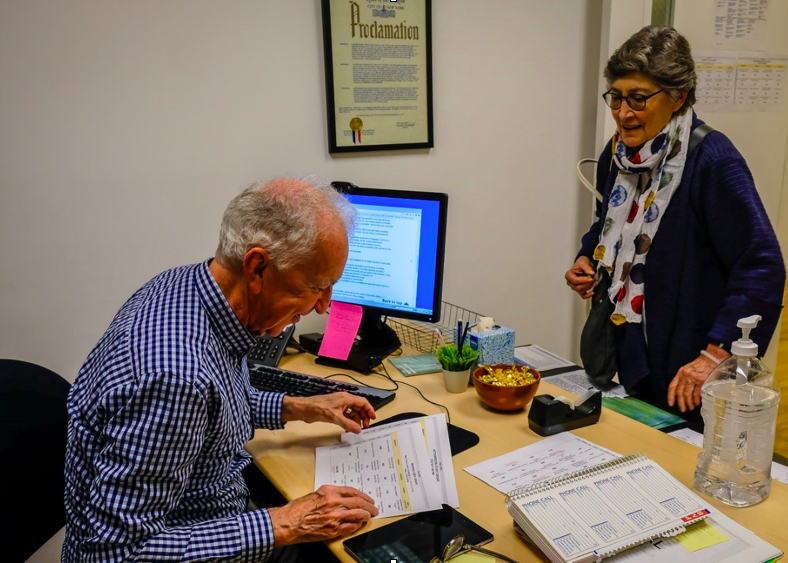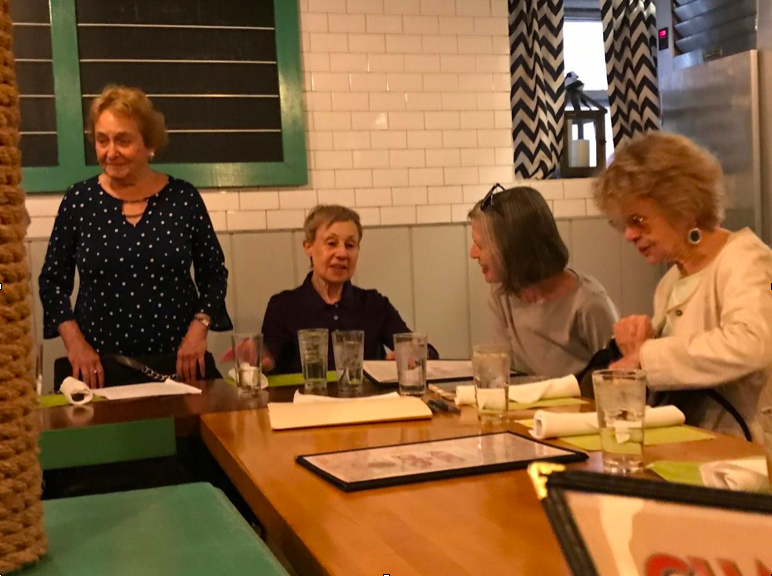by Mary Q. Connelly, IRP Member

A pioneering experiment in peer learning, the Institute for Retired Professionals (IRP) at the New School was established in 1962 by a group of New York City schoolteachers seeking an opportunity to learn from and teach one another. Since that time, the IRP has helped to inspire the Lifelong Learning Institute (LLI) movement and more than 400 university-based programs.
IRP members are the students, the faculty, and almost all the staff. A logical question is, “How can a learning organization of this type be managed effectively?” You have no doubt heard of “herding cats.” It takes a well-structured effort to manage over 300 seniors who have impressive professional and life experiences and who come to the New School seeking learning opportunities and a widening of their social networks. Members tend to have strong opinions, and many have leadership skills.
Acquire Buy-in or What Am I Getting Into?
The IRP understands that we have to be clear about the purpose of the program, the role of the volunteer, and how we fit into the larger New School academic community. Volunteer members will be responsible for the implementation, so we need to achieve buy-in. The IRP is managed by committees. In most respects, we mirror the work of any academic institution. We have an Admissions Committee and Curriculum Committee that form the core of the program. Our other active committees are Development, Diversity, Virtual Classroom, Fridays@One, and Our Stage of Life. The Travel committee might arrange a summer trip to Italy; another committee, On the Town, may offer a “Tour and Tasting” of the Kings County Distillery. On three Tuesday afternoons each semester, the Tuesday with Friends committee sponsors small-group get-togethers featuring talks presented and hosted by IRP members.
Each committee provides a mission statement and the requirements for membership. Openings are announced via the IRP Observer, an in-house newsletter, so that members have the opportunity to apply for committee membership. New students are not expected to join committees or to coordinate study groups until they “get their feet wet” for a few semesters. You perhaps noticed that I did not say “courses,” nor will I say “teachers.” The IRP’s “peer learning” structure means that we do not “teach,” which suggests an expert in front of the room, but “coordinate” study groups to put leaders and participants on a more even plane, highlighting the importance of the participants’ role. IRP member coordinators, who create and lead the study groups, manage the discussion. Proponents of peer learning believe that students learn a great deal by explaining their ideas to others and by participating in communal discussion with their peers. There are no tests and no grades, but there is an academic rigor and an enthusiastic love of learning. What could be better?
Members create study groups on many topics. Some have a teaching background and may present “French Song,” or a lawyer may explore the First Amendment and its implications today. But many members coordinate topics that have nothing to do with their career or prior experience. They see this as an opportunity to explore areas for which they had no time before retirement, maybe Proust or Documentary Film. Many offer that researching the material for the study group is more than half the fun.
The weekly online newsletter, the IRP Observer, includes announcements, updates and information on events. Recently, the Advisory Board instituted a series of “Town Hall” sessions open to all members, to discuss current activities and action plans and to respond to any questions or concerns. The IRP also has a type of intranet, the IRP Zine, which lists information online including study group offerings and contact information and photos of members.
Recruiting Volunteer Committee Members or I Have to Do What?
Matching potential volunteers to the appropriate committees is an important component of the program’s success. People tend to volunteer when they are asked to participate personally and their skills are mentioned as the reason for being targeted. The introduction to our structure and operation begins with the Orientation Program emphasizing that we IRP members run our own program. Each member must accept some responsibility for the management of the organization to maintain IRP standards and longevity.
Our primary responsibility is the creation of a curriculum. Every member is expected to consider coordinating at some point. The Curriculum Committee offers support options from developing a topic to constructing a syllabus. They also provide training sessions to help first-timers move from concept to a final study group proposal and to learn the tools and tricks to become an effective coordinator. Many members choose to co-coordinate, thus sharing the work and developing relationships. The Curriculum Committee present 36 study groups each semester that cover a variety of topics to both challenge and instruct in an environment of academic excellence. Offerings in the Spring of 2018 included “Cosmology for the Curious,” “Environmental Threats,” “Gems of French Cinema” and “Rock ’N’ Roll Roots to Rap.”

Policies and Procedures or What Do We Do and Why?
Policies tell members what they are expected to do, and procedures provide steps on how to implement those policies. It is also essential that we connect the IRP to The New School and its mission. The IRP’s Strategic Plan helps to guide our actions and to measure program effectiveness. Every committee develops a mission statement that is used as a guidepost for its activity plan.
Management Structure or Who is in Charge and How Do I Fit In?
The IRP is part of the Schools of Public Engagement under the leadership of Executive Dean Mary Watson. Traditionally, the IRP has had a director and an office assistant as the only two people who are New School staff. To support the assistant, a First Desk, staffed by IRP members, handles member questions, answers the phone, and assists as needed. An Advisory Board elected by the membership with additional members representing the major committees works with the director. Recently the position of Director has been vacant, so the IRP has been reporting to a New School associate dean. The assistant position has been upgraded to assistant director of administration, and the Executive Committee of the Advisory Board has stepped up to provide additional day-to-day support. This underscores the need for flexibility in a volunteer organization.
Recognition or Is Anybody Noticing?
Recognition within a volunteer organization is essential. Those in charge should be sure to recognize and thank individuals who have made significant contributions. The IRP’s general membership meetings at the end of each semester provides an opportunity to publicly thank those who have served as coordinators, are long-term committee members, or have made other notable efforts in support of the IRP.
